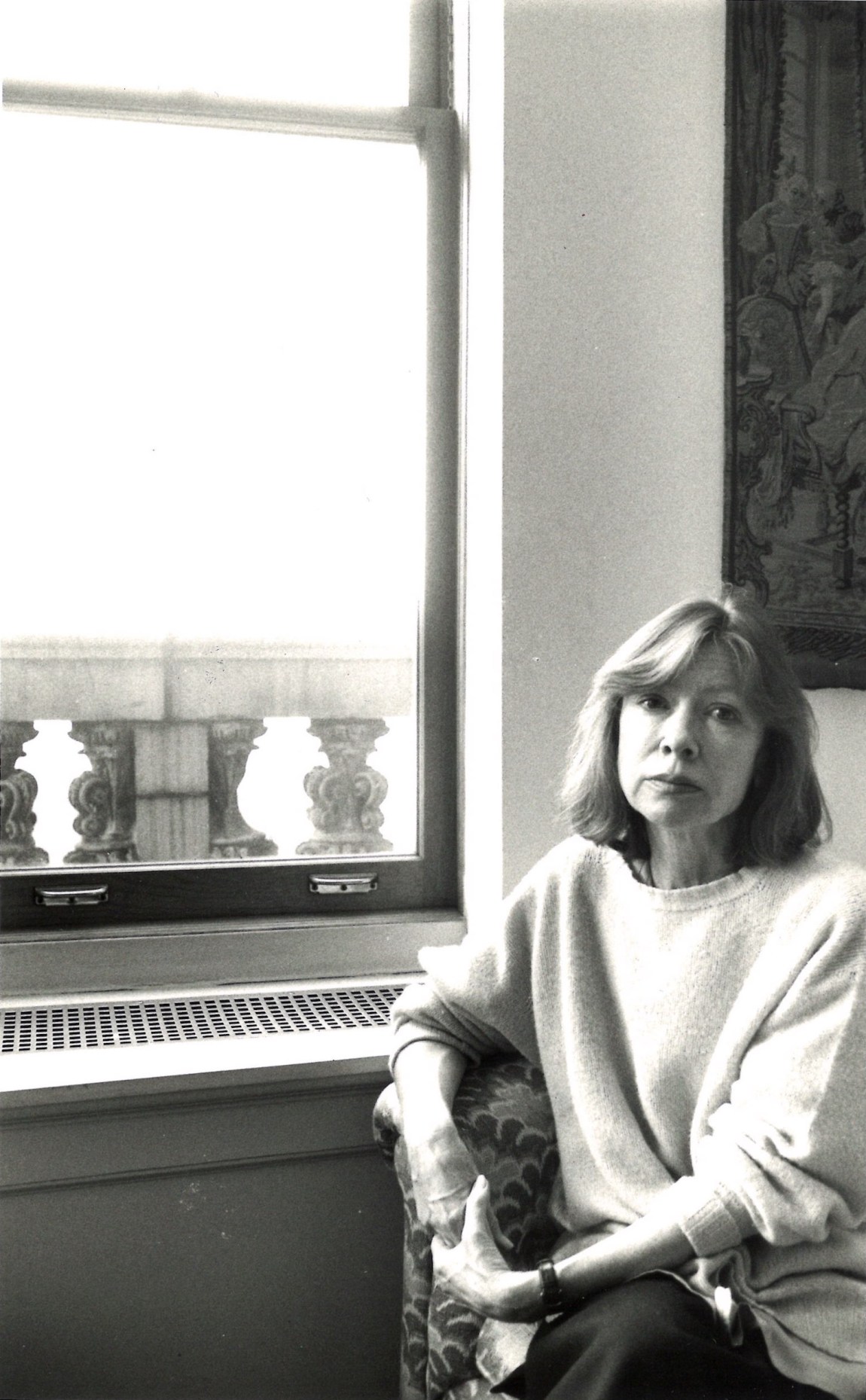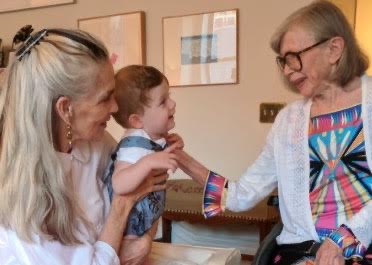As some of you may know, Joan was an eccentric. Or perhaps it is more judicious to say that she was set in her ways, ways that would not be considered conventional. There was, to paraphrase Robert Lowell, something about her both enchanting and reproachful.
For example, she did not answer the telephone. And she rarely made telephone calls. I spoke to her many times on the phone, but not because she called me or I called her. John used the telephone often, sometimes calling different friends every day to report or, better still, to hear some gossip or news. If I began to tell him something which he knew would amuse her, he would interrupt me to call out, “BABE, PICK UP!” and a few seconds later, Joan would come on the line—I could tell from the sound of her voice that she was already smiling. And although she was loyal and trustworthy, uncorrupted and punctilious, she was not particularly solicitous. Still, it was easeful to sit with her, even if we did not speak.
Her silence was a refuge which I often preferred to conversation, but there was tension beneath the calm, a form of homesickness for California perhaps, even when she was in California. And while she seldom resorted to making jokes herself, she liked to laugh, having a subtle understanding of the specificity that makes something funny. What really had her attention was irony, which could sometimes make her seem disdainful. But then irony is a kind of disdain. There is often a moral in it, too, if you know where to look.
While she had very determined views, many of which she revealed only in her writing, she had no interest in shaping one’s character. Very rarely, she would say something helpful in nature if I asked her advice, although I often missed her meaning until I had thought about what she had said.
When I gave her the manuscript of my first book to read—filling her with dread, as she later admitted—she told me that she thought it would do. I was of course relieved and pleased. She then said, “Now write it again.” Which surprised and irritated me, although I did as I was told.
There were other clues over the years, but very few. One night, a friend unexpectedly brought Bianca Jagger to dinner at the house in Trancas. Bianca chose to spend the evening looking through some magazines she found on a table. I had rarely seen Joan so angry. When everyone had left and we were washing glasses and emptying ashtrays, she turned to me and said, “Evil is the absence of seriousness.” Nothing more.
Another time, I was defending a friend who had behaved erratically, reminding Joan that the woman was often original and seldom uninteresting, when she interrupted me to say, “Crazy is never interesting.”
The writer Brian Moore read her novel Democracy in manuscript and told me that it was based on my family in Hawaii. I was startled by this, but when I somewhat naïvely asked her if this was true, she did not bother to answer me. The next day, however, she said, “I would drop this whole idea of knowing the truth.”
Over time, I learned to read her gestures and expressions, studying her as if she were a rune of mysterious and magical significance, which of course she was. When she learned from John that I was hoping to find a friend who had disappeared, I could see that she thought it a fruitless endeavor. For once, I pressed her. All she said was, “Whatever you do, you’ll regret both.” When I suddenly moved from Los Angeles to London in the late Seventies, without having told her that I was leaving, she sent me a note containing only two sentences. One of them was “Read The Golden Bowl.” The other was “Stop running away.”
So not much direct or specific instruction over almost sixty years of intimacy. But, as it turned out, enough to get me through. Evil is the absence of seriousness. Drop the whole idea of knowing the truth. Whatever you do, you’ll regret both. Crazy is never interesting. Stop running away. Write it again.




